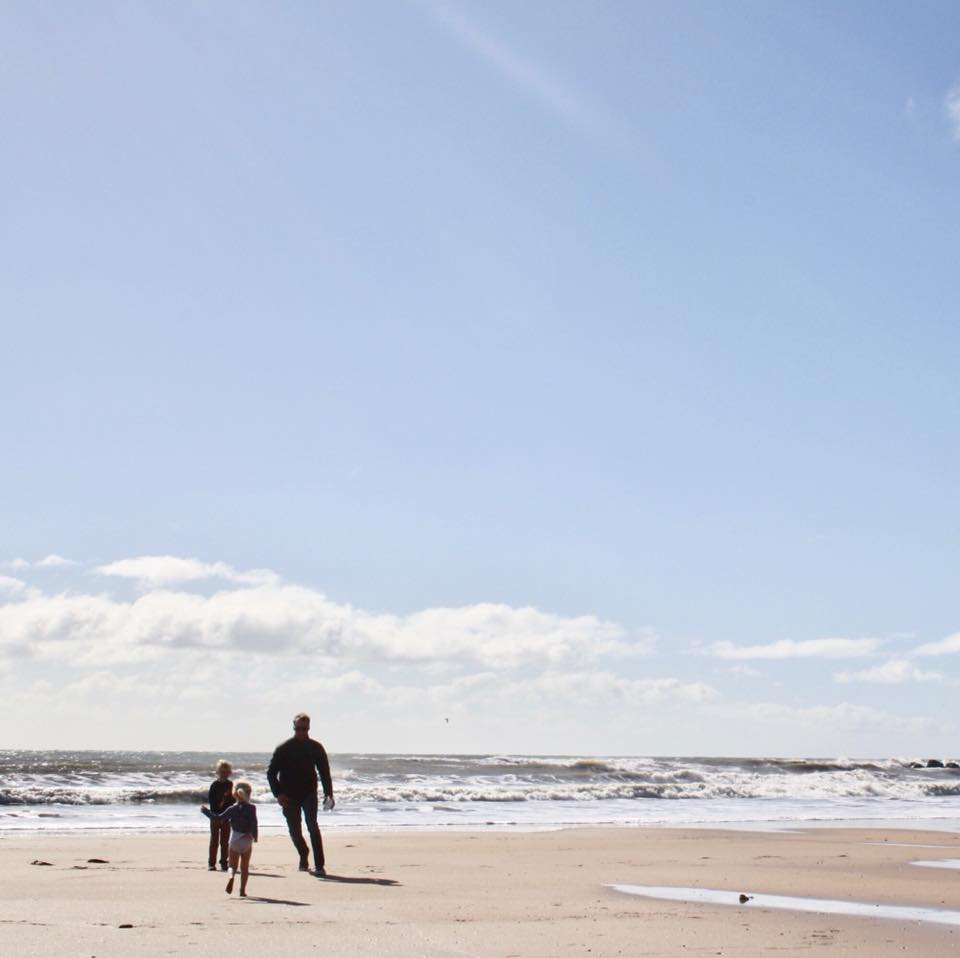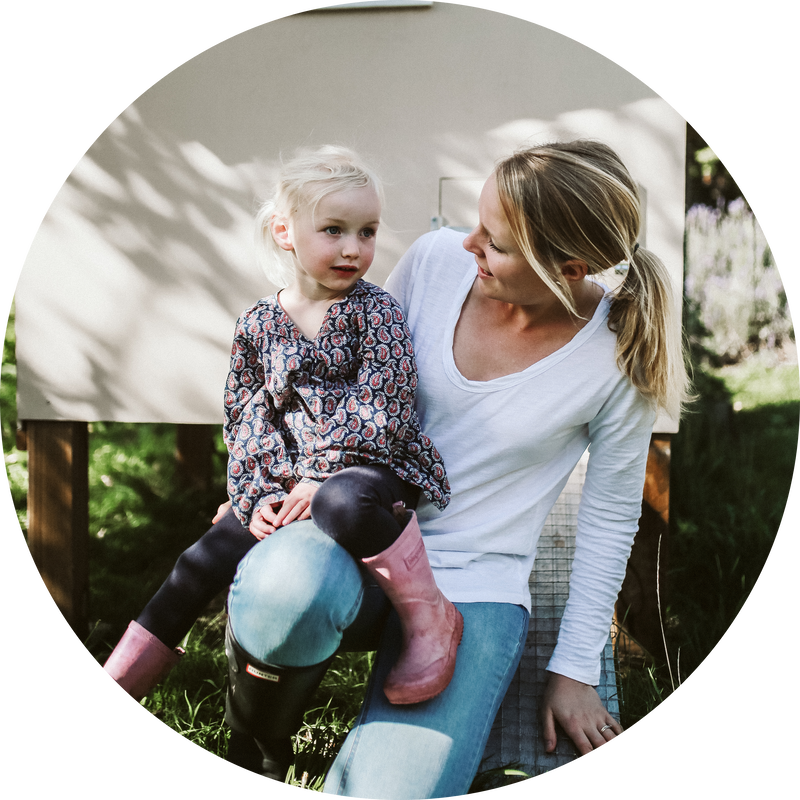|
What are the fondest memories of your childhood? For many of us we have many memories of climbing trees and playing for hours in the sun, creating our own games and running wild without too much input from our parents. But life is different for children today. All around the world children are spending less time playing outdoors and more time inside. In Australia most children are not playing outdoors everyday and 1 in 10 children play outside less than once per week. It is an alarming trend. However we have the power to change this reality for our own children or the children in our lives. If we can work to fit more outdoor time in, even just a little bit, then our children stand to benefit in many ways. Heading outdoors regularly can have a wide range of positive effects on our children's health and wellbeing. So, having taken my own children out everyday for the past two months, here are my top 10 tips for getting outdoors more often... 1. PlanAt the beginning of the week, when you sit down to write on your calendar, make an appointment with nature. Putting it in the diary is a great way to ensure you have at least one great outdoor experience every week. 2. Don't let the weather stop you.In Scandinavian countries where a large percentage of children attend forest kindergartens, they have a saying, ‘There is no such thing as bad weather, only bad clothing.’ As parents we perhaps don’t always feel like getting cold and wet or washing all those muddy clothes, but children feel differently. 3. Kick the kids out.Mud play is no fun when it includes mud trudged through a clean house. Or when you give over a corner of your backyard to create a kind of mud wonderland and after ten minutes the kids say they are bored and want to go back inside. So take snacks and water out and then explain that you aren’t going back inside for a certain block of time. Often my kids will ask to go back inside within the first half an hour. I simply tell them that we have to stay outside for a whole hour. Then they will start some creative play and after two or three hours I will be the one telling them to come back inside. 4. Take inside activities outside.Instead of eating sandwiches and fruit at the table, wrap them up in a tea towel and have a picnic outside. Little babies love to have their tummy time on a rug outdoors. Older children might like taking their pencils outside and finding inspiration in the flowers, birds or trees. Even dress ups, dolls and doctors kits can be taken outside for an afternoon. Pretend play is much more fun with a bit of green grass to romp around on. 5. Meet your friends outdoors.Children love being in nature with others, so call up your friends and head outdoors together. A grassy hill, a pile of sticks or a patch of dirt is transformed when there is a friend there to play with. 6. Use outdoor time as downtime.When children are tired, especially after school, we can fall into the trap of thinking that screens are a good way to give them a rest. However occupational therapist, Angela Hanscom, explains that sitting still in front of a moving screen can actually be stressful for children. While watching a screen, children's brains are being stimulated but they are not experiencing movement, the normal reaction to that stimulation. She explains that this is why children sometimes become grumpy after watching too much television. Since starting our project we have stopped turning the television on for our three year old after preschool. Instead he heads into the backyard and rides his bike. Or we take him to the park around the corner for an hour. At first it felt counter intuitive to send him outdoors to be active when I could see how tired he was from his day, however it works to relax him more than the television ever did. 7. Prepare your kit.I keep raincoats, all our gumboots and our picnic rug in a box by the door. In the back of my car lives our bucket and spades, a few towels and some spare clothes. This way we are always ready to stop and play outdoors if we ever have a free moment. If you live in the city and don’t have a backyard, carrying a little kit (maybe a rug, a ball or a small bucket and spade) means you can make the most of your local green space whenever you head out. 8. Set a family goal.Setting yourself a goal helps you to take the kids outdoors even when you may be inclined to do otherwise. Last week, for example, it was wet and cold and the sun was quickly setting, but because of our project we decided to put on our coats and go for a walk. The kids loved squelching in the wet grass, saying goodnight to the birds and watching the darkening sky. It was a lovely moment of family bonding, that we would have missed had we stayed indoors. 9. Walk.Swap some of your driving trips for walking and enjoy the time to be outdoors together. If you have school age children and are in the habit of driving them to school try, even just once a week, to walk. Recent studies have shown that it will help them to concentrate better once they are in class. 10. Do less inside activities.,Is your week already filled with music classes, playgroups, swimming lessons or trips to indoor play centres? Sometimes you just have to say no and do less. Save your money and take them outdoors instead. And as an extra tip... just try and slow down a little bit.Children love being outdoors. Young children especially, are instantly drawn to the experiences and materials that they find in nature. This means our children will find a place to climb anywhere we go, they will want to jump in every puddle and stop to admire every other stick. As a parent it is sometimes easy to see this behaviour as frustrating and as slowing us down. However when we look at these moments in the bigger picture we can see that for our children they are significant. In these moments children are investigating, they are learning about the world they live in and also about themselves. They are testing and refining their physical skills and engaging their creative minds to dream and imagine. And they are forming a connection to the natural world, a connection that will go with them throughout their lives. Fostering that connection is one of the greatest gifts we can give our children. 'For in the true nature of things, if we rightly consider, every green tree is far more glorious than if it were made of gold and silver.' Martin Luther Parenting doesn’t have to be overwhelming, I’ll help you find a simpler way so you can deepen your connection with the ones you love. Sign up for my free course, or get my 1-2-3 newsletter in your inbox each week.
0 Comments
Leave a Reply. |
Hi, I'm HannahI write about parenting, simplicity, nature and play. Categories
All
|


